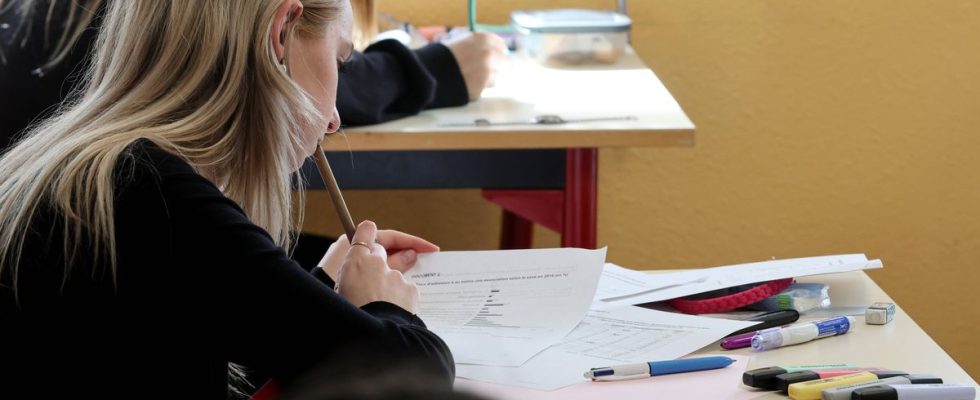Small pieces of paper in the kit, formulas entered in the calculator, mobile phone consulted in the toilet… The techniques for cheating in exams are as diverse as they are numerous. But what is the risk of cheating during the baccalaureate or patent?
The Ministry of National Education and Youth recalled the penalties incurred in the event of fraud or attempted fraud during the baccalaureate exams. This information is also communicated to the candidates at the start of each test.
What constitutes fraud?
Communicating with other candidates during the tests and using information, documents or materials not authorized by the subject or the regulations are considered fraud or attempted fraud. Any substitution of person is also.
How is the rest of the trial going after a flagrante delicto of fraud or attempted fraud?
In the event of flagrante delicto or attempted fraud, the supervisor in charge of the room takes the necessary measures to put an end to it. The candidate continues his composition, except in the event of substitution of person or “trouble affecting the course of the test”. A report is then drawn up and countersigned by the other supervisors and by the perpetrator at the end of the test. This document is then sent to the rector for referral to the Baccalaureate Academic Disciplinary Committee.
During deliberations, the jury decides on the candidate’s results. No certificate of achievement or transcript of marks is issued before the academic commission has ruled. The decision of the latter is expected within two months after the announcement of the results and may be challenged before the administrative court.
What are the penalties incurred?
The penalties incurred may be administrative and/or criminal. By virtue of the independence of criminal and disciplinary proceedings, the same act of fraud may be the subject of a conviction by the criminal court and a sanction pronounced by the academic disciplinary committee. However, criminal penalties relate specifically to the most serious cases of fraud, such as subject disclosure and person substitution.
The administrative penalties incurred by fraudsters are diverse and can range from a reprimand to a ban on enrolling in a public establishment providing post-baccalaureate training for a maximum period of five years, to deprivation of any mention made on the diploma issued to the admitted candidate or by the ban on taking any examination leading to the baccalaureate for a maximum period of five years or a title or diploma issued by a public institution providing post-baccalaureate training for a period maximum of five years. This sanction may be suspended if the ban does not exceed two years.
In criminal matters, the penalties incurred are: three years in prison and a fine of 45,000 euros for forgery and use of forgery, up to three years in prison and a fine of 50,000 euros for falsification of documents, up to ten years in prison and a fine of 1 million euros for identity substitution during the tests. The disclosure of test subjects and the substitution of a person are punishable by a sentence of three years in prison and 9,000 euros. The same penalties may be imposed on accomplices to the offence.
What happens after the penalty is pronounced?
Any sanction imposed entails, for the person concerned, the nullity of the event during which the fraud or attempted fraud was committed. The Disciplinary Committee may also decide to declare the group of tests or the examination session null and void.
What measures are in place to combat fraud?
Since 2013, all academies have been equipped with mobile phone detectors, the number and location of which are confidential. The rectors distribute these devices randomly and ensure that they circulate between the examination centers throughout the tests.
This system aims to prevent the fraudulent use of new technologies. As a reminder, all unauthorized devices must be turned off and stored in the candidate’s bag.

